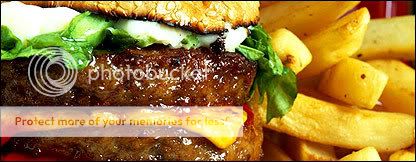 Strangely enough I've never really thought about this. I guess I just assumed that candy and high-sugar, high-fat foods were "junk foods" that should be enjoyed in moderation. This can be hard though as they are often the best tasting foods around, ;-).
Strangely enough I've never really thought about this. I guess I just assumed that candy and high-sugar, high-fat foods were "junk foods" that should be enjoyed in moderation. This can be hard though as they are often the best tasting foods around, ;-).Yesterday I read a BBC article however that got me to thinking about this simple phrase: junk food.
You can't open a newspaper or switch on the box without hearing about the latest initiative to wean young people in particular off "junk food" and on to healthier foodstuffs.
Last week, the Office for Communications (Ofcom) unveiled plans to ban ads for junk food during TV programmes aimed at kids.
That followed hot on the heels of the government's clampdown in September on the sale of chocolate, crisps, the fizzy stuff (cola, lemonade, etc) and "low-quality meat" in schools across the nation.
This sounds good so far, right? I don't agree with the bans because parents should be able to exercise control of their kid's diets and spending. But this isn't the point as the UK is more of a nanny state though in some areas the US is worryingly fast to catch up.
But what exactly is junk food? It's widely believed that the phrase was coined by Michael Jacobson, director of the American Center for Science in the Public Interest, in 1972.
For most people, the phrase conjures up images of hamburgers, pizzas, chips and sweets.
For the Food Standards Agency - from which both the government and Ofcom got their definition of junk food - it is any food high in fat, salt or sugar.
So why are some fatty foods defined as "junk", but others are not? Government ministers and celebrity chefs look down their noses at French fries (which in McDonald's contain about 5g of fat), and at the same time think nothing of tucking into a dish like duck a l'orange (which can contain 15 to 20g of fat in a single serving).
And why are some food outlets, such as McDonald's or Domino's Pizza, labelled as "junk", while others that serve similar dishes, like posh burger bars or Pizza Express, are seen as being acceptable and trendy, and possibly even healthy?
Would you have thought about this? I think I shared the same preconception that McDonald's and other fast food was somehow different from what you find in other restaurants. This, however, may not always be the case! Read the rest of the article as it is quite fascinating. There are differences with fast food, but perhaps not always the ones that you think.
~Matt
No comments:
Post a Comment